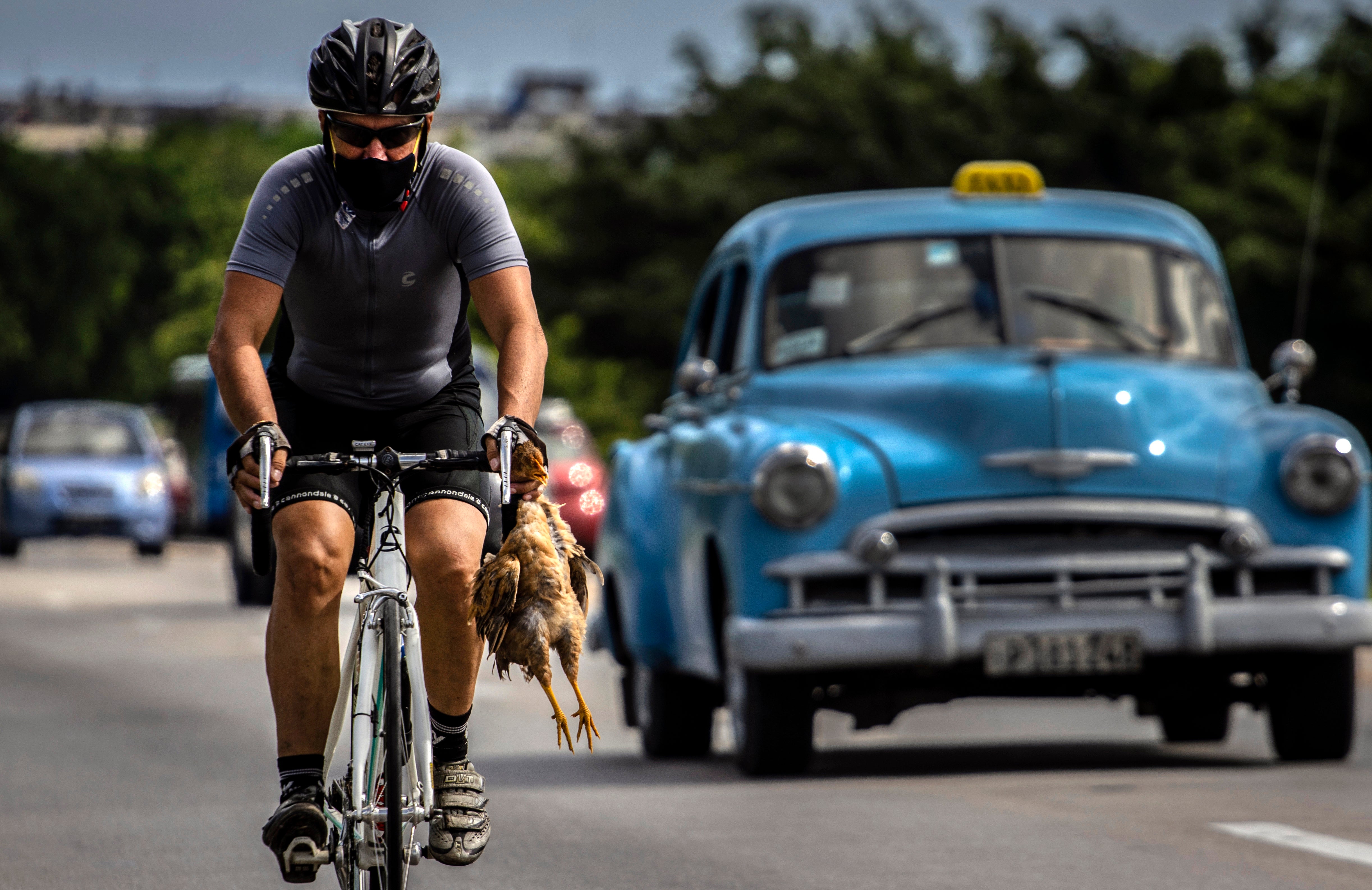Cuba relaxes coronavirus restrictions 7 months into pandemic
Cuba is relaxing coronavirus restrictions in hopes of boosting its economy

Your support helps us to tell the story
From reproductive rights to climate change to Big Tech, The Independent is on the ground when the story is developing. Whether it's investigating the financials of Elon Musk's pro-Trump PAC or producing our latest documentary, 'The A Word', which shines a light on the American women fighting for reproductive rights, we know how important it is to parse out the facts from the messaging.
At such a critical moment in US history, we need reporters on the ground. Your donation allows us to keep sending journalists to speak to both sides of the story.
The Independent is trusted by Americans across the entire political spectrum. And unlike many other quality news outlets, we choose not to lock Americans out of our reporting and analysis with paywalls. We believe quality journalism should be available to everyone, paid for by those who can afford it.
Your support makes all the difference.Cuba relaxed coronavirus restrictions Monday in hopes of boosting its economy. allowing shops and government offices to reopen and welcoming locals and tourists at airports across the island except in Havana.
Face masks and social distancing remain mandatory, although authorities will no longer isolate those who have been in contact with suspected cases as the island returns to a semblance of normality.
The popular beach resort town of Varadero will open to foreigners starting Thursday, with all tourists coming to Cuba facing mandatory testing and epidemiological monitoring while on the island.
The change comes after officials acknowledged the need to reactivate an economy hit by pandemic restrictions and recent sanctions the U.S. has imposed as President Donald Trump seeks votes from anti-Castro Cuban-Americans ahead of the general election.
The island of more than 11 million people has reported some 6,000 coronavirus cases and more than 120 deaths from COVID-19 since March, with the government credited with swiftly identifying and isolating cases and implementing house-to-house visits.
María Isabel Batista, a 58-year-old artisan, said that while it has been hard to remain at home, people must remain aware of the virus.
“Our safety depends on us,” she said.
The pandemic has been largely controlled in most Cuban provinces, with President Miguel Díaz-Canel announcing last week that some have not reported any new cases in several months.
However, some restrictions are still in place in Havana, a city of 2 million people that saw an outbreak in August. Schools in the capital are not expected to reopen until early November, while classes elsewhere on the island resumed last month.
The pandemic had frozen Cuba's critical $3 billion tourism industry since March, when the first coronavirus cases were reported. Agriculture, transportation and remittances also were hard hit, although public transportation resumed Monday with limited capacity. Overall, Cuba’s gross domestic product is expected to fall more than 8%.
Cuban health authorities said they would closely monitor the spread of the coronavirus and deal with any outbreaks as they happen, but they would not reimpose blanket shutdowns used after the pandemic began.
The relaxing of restrictions occurred the same day as Panama’s government welcomed international flights for the first time since March and reopened hotels and casinos.
Panama’s Tocumen airport is one of Latin America’s most important hubs and had been operating only humanitarian flights since April and accepting only connecting flights last month. The country also reopened theaters, museums and other tourist attractions, but with limited capacity. Universities and schools remain closed.
Panama, a country of 3.9 million people, has reported more than 120,000 coronavirus cases and more than 2,490 deaths.
___
Associated Press writer Kathia Martínez in Panama contributed to this report.